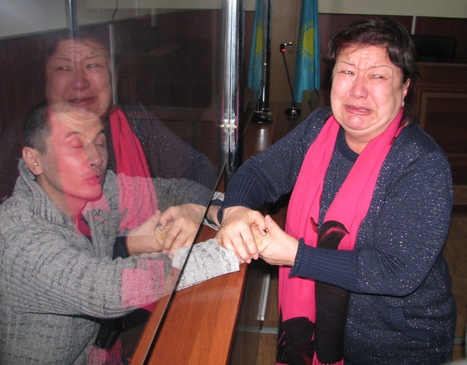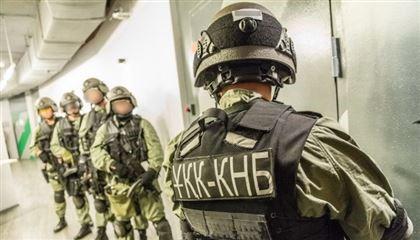Overview: Kazakhstan remained on guard against the potential for attacks by FTFs returning from war zones in the Middle East and Afghanistan, as well as homegrown terrorist attacks. Between January and June, the government repatriated 595 Kazakhstani FTFs and family members from Syria, prosecuting those suspected of participation in terrorist activity abroad and providing rehabilitation and reintegration services to the remainder. The government continued to implement its five-year (2018-2022) program against “religious extremism and terrorism;” however, the strategy’s continued restrictions on religious practice have prompted concerns among some outside experts that the government’s efforts may be counterproductive.
2019 Terrorist Incidents: There were no reported terrorist incidents in Kazakhstan in 2019.
Legislation, Law Enforcement, and Border Security: Kazakhstan has a comprehensive CT legal framework. The country’s lead agency for counterterrorism is the Committee for National Security (KNB), which coordinates efforts among multiple state agencies and at the local level. In 2018, the government approved an ambitious five-year, $900 million program to counter “religious extremism and terrorism.” Law enforcement officers and prosecutors continued to have wide discretion to determine what qualifies as “terrorism” or “extremism,” leaving political opponents and promoters of unsanctioned religious groups vulnerable to prosecution.
Kazakhstani law bans citizens from fighting in foreign wars. In 2017, the president signed a law that allows the government to deprive Kazakhstanis of citizenship if they are convicted of a range of “grave terrorism and extremism-related crimes.” The government has not yet deprived anyone of citizenship in connection with such cases. The government takes a two-pronged approach to citizens returning from Iraq and Syria, offering rehabilitation services to some and arresting and prosecuting others. Between January and June, Kazakhstan carried out “Operation Zhusan,” which repatriated 595 Kazakhstani citizens from Syria, including 33 male FTFs. In November, the government facilitated the return of 14 Kazakhstani children from Iraq, where their mothers were serving sentences on terrorism-related charges. The same month, KNB publicly estimated that more than 90 Kazakhstani citizens remained in Syria, in addition to six women imprisoned in Iraq.
Law enforcement units demonstrated a strong capacity to detect, deter, and respond to terrorist incidents. The government’s CT plan allowed for enhanced interagency cooperation, coordination, and information sharing, but the extent to which this occurred remained unknown.
In January, KNB reported the arrest of Tajik citizens accused of planning a terrorist attack in Almaty; in September, seven individuals received prison terms ranging from 12 to 18 years in connection with the plot. In June, the Penitentiary Committee reported that approximately 600 people were serving sentences for terrorism and “extremism.” Courts continued to deliver harsh sentences for the promotion of “extremism” online. For example, in August an Almaty court sentenced eight men to prison terms ranging from five to eight years on charges of promoting terrorism and religious hatred for sharing religious content that the government considered inflammatory in a WhatsApp group. In many cases, the nature of such charges is difficult to verify and, in some cases, appeared to be connected to political opposition activity. Local researchers estimate that as many as 90 percent of charges filed under laws against terrorism and “extremism” do not involve violent acts or planned violent acts.
Kazakhstan’s Border Guard Service (BGS), part of the KNB, uses specialized passport control equipment, allowing officers to check for fraudulent documents. Through the first 10 months of 2019, BGS officers detected approximately three dozen cases of foreign travelers attempting to enter or transit Kazakhstan with fake documents, such as two Iranian women with fraudulent Italian passports detained at Almaty airport in October. In recent years, Kazakhstan has strengthened security on its southern border by adding radar systems, inspection equipment and vehicles, and specialized mobile inspection groups. The government proactively worked to prevent Kazakhstanis from traveling to fight abroad in Syria and Iraq in keeping with UNSCR 2178.
Countering the Financing of Terrorism: Kazakhstan belongs to the EAG. The Crime Statistics Committee of the Prosecutor General’s Office reported that three terrorist financing cases were transferred to the court system during the first 10 months of 2019.
Countering Violent Extremism: Kazakhstan’s five-year strategy places a heavy emphasis on law enforcement. The strategy focuses on teaching government sanctioned versions of Islam to youth and providing alternatives to “radicalism” through social programs and economic opportunities. The government’s Committee on Religious Affairs conducted direct outreach in communities across the country. The government continued to implement rehabilitation and reintegration programs for individuals convicted of “extremism”-related offenses and their relatives. To assist with the rehabilitation and reintegration of Kazakhstani women and children repatriated from Syria, the government established 17 centers throughout the country to provide mental health services, religious instruction, and other services.
The Government of Kazakhstan censored online content to reduce “extremist” messaging. Religious experts associated with government institutions created groups on social networks, where they posted information and answered user questions about “religious extremism.” Committee on Religious Affairs officials provided training for local imams, NGOs, and the media. On December 10-11, the government hosted a regional SCN workshop in Almaty on terrorist rehabilitation and reintegration.
International and Regional Cooperation: Kazakhstani agencies partnered with the United States and international organizations such as UNDP, UNODC, and the OSCE on a variety of CVE and terrorist travel prevention projects. As a member of the C5+1 diplomatic platform, Kazakhstan participates in the associated C5+1 Security Working Group, which focuses on regional CT cooperation. In December 2019, KNB agreed to work with the United States to establish a National Intelligence Fusion Cell in Nur-Sultan. With U.S. training and equipment assistance, the cell will consolidate intelligence from the Ministry of Defense, BGS, KNB, and international sources to enhance regional CT efforts. Kazakhstan also hosted a UNODC-administered regional workshop on detection and prevention of terrorist travel in Almaty in April 2019. Kazakhstan also participates in CT-related exercises and training through membership in the Collective Security Treaty Organization, the Commonwealth of Independent States (CIS), and the Shanghai Cooperation Organization.
During the 2019 CIS Summit, Kazakhstan signed a cooperative agreement between the CIS members to jointly combat terrorism, including preventive measures for “countering extremism, radicalization of the population,” financing terrorism, as well as involving civil society and mass media, holding special trainings, and the use of modern technologies for timely response to potential threats.
SOURCE:
https://www.state.gov/reports/country-reports-on-terrorism-2019/kazakhstan/



